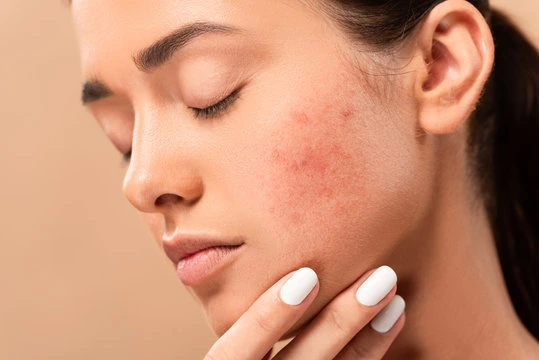Struggling with skin-related problems can be incredibly frustrating. Whether you’re dealing with acne, dryness, redness, or uneven skin tone, these issues can impact your confidence and overall well-being. Fortunately, there are effective ways to address and prevent these problems. In this guide, we’ll explore practical tips and recommended products to help you achieve healthy, glowing skin.
Understanding Common Skin Problems
Before diving into solutions, let’s take a closer look at some common skin-related problems:
- Acne: Pimples, blackheads, and whiteheads are typically caused by clogged pores, bacteria, and excess oil.
- Dry Skin: Characterized by flakiness, itching, and irritation, often due to environmental factors and lack of hydration.
- Redness: Often results from inflammation, sensitivity, or conditions like rosacea.
- Uneven Skin Tone: Dark spots and hyperpigmentation can be caused by sun damage, acne scars, and aging.
Top Tips to Stop Skin-Related Problems
1. Establish a Consistent Skincare Routine
A consistent skincare routine tailored to your skin type is crucial for preventing and addressing skin issues. Here are the key steps:
- Cleanse: Use a gentle cleanser to remove dirt, oil, and makeup without stripping your skin’s natural moisture.
- Exfoliate: Regular exfoliation helps to remove dead skin cells and prevent clogged pores. Opt for a chemical exfoliant like glycolic acid for a gentle yet effective approach.
- Moisturize: Keep your skin hydrated with a suitable moisturizer. Look for ingredients like hyaluronic acid, ceramides, and glycerin.
- Protect: Always apply a broad-spectrum sunscreen with SPF 30 or higher to protect your skin from harmful UV rays.
2. Use Targeted Treatments
For specific skin issues, incorporate targeted treatments into your routine:
- Acne: Products containing benzoyl peroxide or salicylic acid can help to clear up breakouts and prevent new ones from forming.
- Dry Skin: Use a rich, hydrating mask or serum to provide an extra boost of moisture.
- Redness: Look for products with soothing ingredients like aloe vera, chamomile, and niacinamide.
- Uneven Skin Tone: Vitamin C serums and products containing alpha arbutin can help to brighten and even out your complexion.
3. Maintain a Healthy Diet
What you eat can significantly impact your skin. Incorporate these skin-friendly foods into your diet:
- Antioxidant-rich fruits and vegetables: Berries, spinach, and carrots can help to fight free radicals and promote healthy skin.
- Omega-3 fatty acids: Found in fish, walnuts, and flaxseeds, these healthy fats help to maintain your skin’s moisture barrier.
- Hydrating foods: Cucumbers, watermelon, and leafy greens can help to keep your skin hydrated from the inside out.
4. Stay Hydrated
Drinking plenty of water is crucial for maintaining healthy skin. Aim for at least 8 glasses of water a day to keep your skin hydrated and flush out toxins.
5. Get Enough Sleep
Adequate sleep is essential for skin repair and regeneration. Aim for 7-9 hours of quality sleep each night to allow your skin to recover and rejuvenate.
6. Manage Stress
Stress can exacerbate skin problems like acne and redness. Incorporate stress-relieving activities into your routine, such as yoga, meditation, or deep breathing exercises.
By incorporating these tips into your daily routine, you can effectively combat and prevent common skin problems. Remember, achieving healthy, glowing skin takes time and consistency, so be patient and stick with your routine.
.

